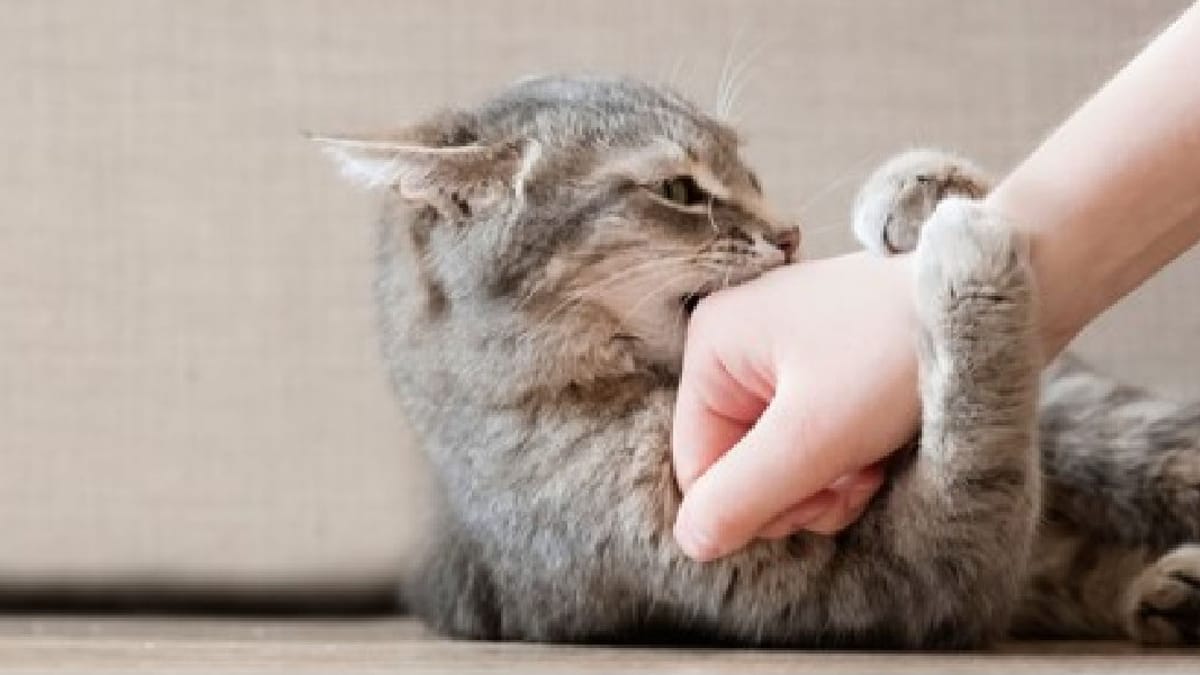I sedatives for aggressive cats they are therapies designed to improve the hyperactivity and pathological aggression behaviors of their cats.
Prescribed by veterinarians, these tranquilizers (or sedatives) can be real medicines or natural remedies. The options that can be found on the market are different and all aimed at improving the animal’s mental health, let’s see what they are together.
Why is a cat aggressive?
The causes of aggression and hyperactivity in cats originate from different situations. Aggression hides:
- frustration of the animal;
- fear;
- bride;
- previous traumas;
- ill adaptability to the environment that hosts it, poorly suited to its needs.
This last case occurs, for example, when he is forced to live with his fellow humans with whom he doesn’t get along, when he is subject to various changes in his routine, frequent moves and trips, when the environment is not very stimulated or he stays too much alone.
The cat has a tendency to react to situations of stress and anxiety in an aggressive manner even when it has been removed early from the mother cat (before 2 months of life), when it is sick and in pain, when it suffers from the Hs-Ha behavioral syndrome ( hypersensitivity-hyperactivity).
How to calm down aggressive cats?
In general, a stressed or anxious cat tends to be aggressive and demonstrates its state of mind:
- arching the back;
- blowing;
- growling;
- standing up the hair;
- lowering and turning back the ears;
- dilating the pupils.
A cat in this condition tends not to attack another animal or its owner first. In doing so, in fact, he only tends to dissuade those in front of him because he is aware that his state of mind is not suitable for confrontation.
In these cases, it’s good for the owner leave it be, without paying too much attention to his aggressive behavior and, perhaps, using positive reinforcement to reward him when he is calm. Address him without aggression, but firmly perhaps using a device (such as a spray bottle with water, blowing air on his face or using a toothpick).
In some cases, however, the impetuousness of the cat’s aggressiveness or hyperactivity becomes a real pathology that must be followed up by a veterinarian.
Under medical supervision, your cat may not only be placed on behavioral therapy, but may be prescribed tranquilizer medications.
Calming for aggressive cats
The tranquilizers for cats on the market can be in the form of sprays, snacks and room diffusers based on pheromones, odorous substances capable of causing behavior.
Depending on the cause of the aggressiveness of the cat, it is possible that it may be prescribed not only behavioral therapy but also sedatives, antidepressants and anxiolytics based on benzodiazepines or clomipramines.
A good vet knows that prescribing tranquilizers to your cat is a choice to consider, only if strictly necessary. In fact, despite the benefits that these drugs can have in the cat’s behavior, they can harm the cat’s health in the long run, as they have some side effects.
The side effects of sedatives for cats
Some of the side effects of tranquilizers for cats include:
- loss of orientation;
- addiction and addiction;
- possible allergic reactions.
And the sedative can also have the opposite effect to that hoped, namely increased stress and excitement.
However, there are also natural alternatives that can help calm a particularly aggressive or stressed cat.
Natural tranquilizers for aggressive cats
To reduce your cat’s aggression, you can also opt for natural solutions such as calming herbs for cats.
When we talk about natural remedies for anxious, stressed or very aggressive cats, in fact, we shouldn’t think of herbal teas or various concoctions to make them drink, but of olfactory stimulation that leverages those pheromones signaling incorrect or alert behavior.
Bach flowers
Bach flowers, dispersed in the environment, in bags scattered around the house, can benefit the animal’s state of mind.
The Rescue Remedy and other drops
Among the suitable Bach flowers there is the Rescue Remedy. This alternative anti-stress and anxiety remedy for cats must be alcohol-free and can be applied, as drops, in the dog’s bed or on toys.
Then there are:
- lavender hydrolat;
- chamomile;
- valerian;
- l’Ignatia Amara;
- la melissa.
Your vet will be able to recommend the best remedy for your cat.

